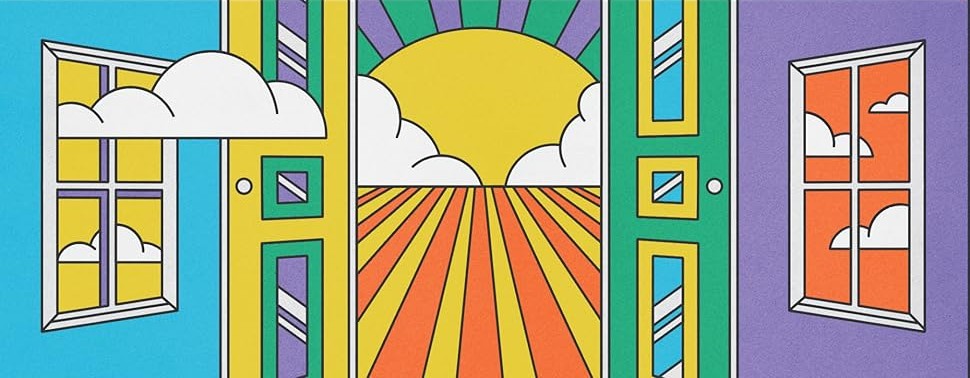 On March 21, 1966, Ebby Thatcher died alone in a small apartment in Ballston Spa, New York. He was 69 years old. His death didn’t make headlines. There were no grand memorials, no speeches at AA conventions honoring him. In fact, the man who had played such a pivotal role in the founding of Alcoholics Anonymous had become, by then, a quiet afterthought — a shadow lingering at the edge of AA’s public story.
On March 21, 1966, Ebby Thatcher died alone in a small apartment in Ballston Spa, New York. He was 69 years old. His death didn’t make headlines. There were no grand memorials, no speeches at AA conventions honoring him. In fact, the man who had played such a pivotal role in the founding of Alcoholics Anonymous had become, by then, a quiet afterthought — a shadow lingering at the edge of AA’s public story.
Ebby was the man who first carried the message to Bill Wilson. The man who, in late 1934, showed up at Bill’s doorstep and said, “I’ve got religion.” It was Ebby who told Bill about the Oxford Group, about surrendering to God, about the moral inventory and the amends process — the foundations of what would become the 12 Steps. It was Ebby who first planted the seed that maybe there was a way out of the endless cycle of drinking and despair.
Bill sobered up. Ebby… well, that’s where things get complicated.
Ebby never stayed sober. He would string together some months, maybe a year, only to fall back into the bottle. Over and over. His name would show up in early AA circles, then vanish. Some members knew he was off drinking again. Others preferred not to mention him at all. In the eyes of early AA, Ebby Thatcher was a problem — an uncomfortable reminder that not everyone makes it. And not everyone fits the narrative.
AA was growing rapidly in those early years. The Big Book had been published, and meetings were multiplying across the country. The public story that AA needed was a story of success — of men and women who had followed the steps and found freedom from alcohol. Ebby didn’t fit that image. He was messy. He was complicated. His story didn’t wrap up neatly with a bow. He was a chronic relapser, a face AA wasn’t always sure it wanted to claim.
Bill never abandoned him, though. Even as AA grew more polished and professional, Bill would quietly support Ebby. When Ebby was broke and drinking, Bill would find him a place to live. When Ebby needed help, Bill would offer it. Bill knew that Ebby had given him the most precious gift of his life — the message of hope. And Bill never forgot it.
In the last year of his life, Ebby found some peace. He got sober — really sober — living in a small house that Bill helped arrange for him. His drinking days were behind him. He even started attending AA meetings again, not as a leader or a success story, but simply as another alcoholic trying to stay sober one day at a time.
When Ebby died on March 21, 1966, it wasn’t the tragic death of a hopeless drunk. It was the quiet passing of a man who had known suffering and hope, and who had given the gift of that hope to another. Ebby never lived to see his own redemption written into the official story of AA. For decades, his name was an uncomfortable footnote — a reminder that not everyone who helps to build something gets to enjoy the comfort of the foundation they helped lay.
Bill would later write that Ebby was his “sponsor,” the man who gave him the greatest gift of his life. Without Ebby, there would have been no AA. But Ebby’s story remains unfinished — a reflection of the truth that not every recovery is linear, not every effort results in permanent sobriety, and not every life is wrapped up with a tidy resolution.
Today, we might see Ebby differently. The idea of recovery itself has expanded beyond the binary of success or failure. Clean time is no longer the only standard by which we measure healing. We now understand that recovery can look different for everyone — that there are many paths to healing. Psychedelics, long dismissed as dangerous, are now emerging as powerful tools for treating addiction, trauma, and depression. In Psychedelics in Recovery, a growing support group for those exploring alternative paths to healing, Ebby’s story would no longer be seen as a failure. He wouldn’t be measured solely by his slips or his setbacks. He would be embraced as someone walking his own path toward recovery, one that didn’t yet have the language or the framework to hold him. Maybe Ebby wasn’t a failure at all — maybe he was simply ahead of his time. If Ebby lived today, we might finally see him not as someone who “didn’t make it,” but as someone who helped light the way for all of us who are still finding our way home.




